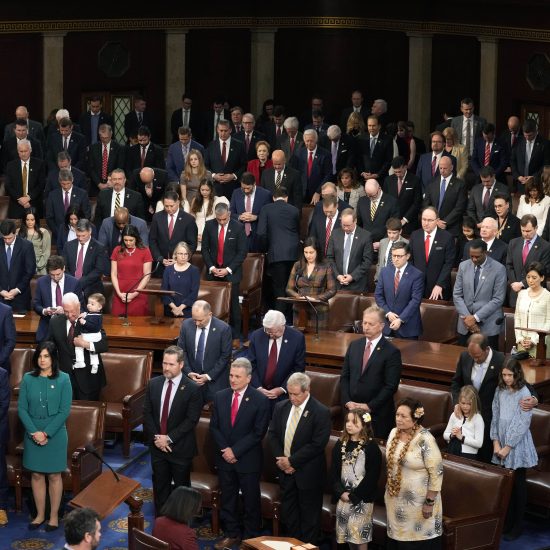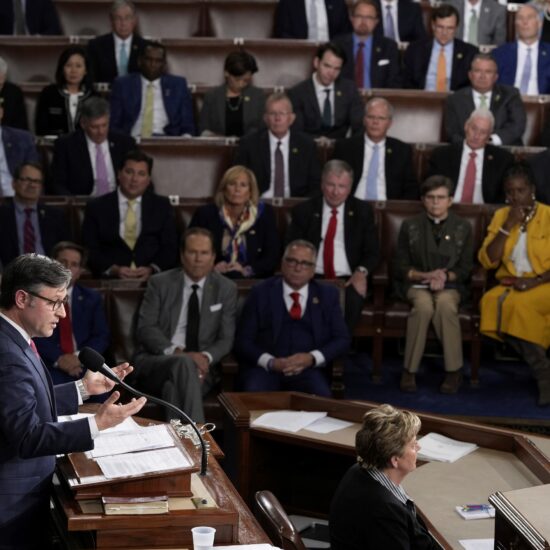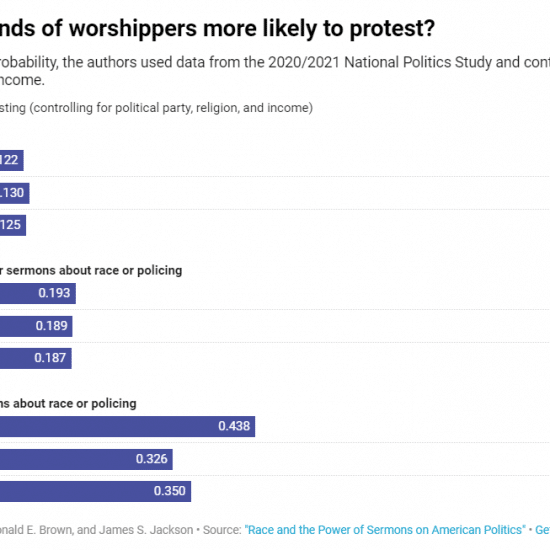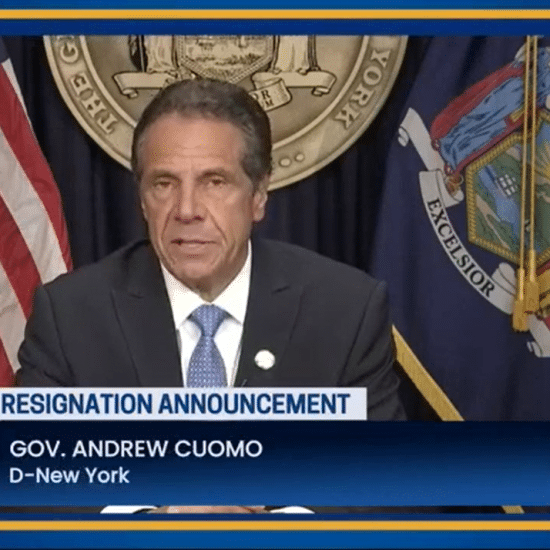By Vicki Brown
Word&Way News Writer
A single-alignment proposal and use of Cooperative Program money to fund lawsuits were among topics addressed in at least two Missouri Baptist Convention listening sessions.
MBC staff held several sessions across the state earlier this year. The last five in the series took place Aug. 11-19.
About 20-25 Missouri Baptists attended a session at Concord Baptist Church, Jefferson City, on Aug. 11. Several attendees expressed concern about restricting churches to align only with the MBC.
The MBC continuing review committee is expected to bring a report, which includes the proposed constitutional change, to the MBC annual meeting in October for messengers will be asked to adopt the committee's report.
According to the constitution, a proposed change must be read at one annual meeting and be voted on at the following meeting. Under those guidelines, the change could not take effect unless messengers approve it in 2005.
If approved, single alignment would eliminate Missouri Baptist churches from membership in the MBC if those churches send messengers or representatives to or if they contribute funds to another state convention.
In response to a question posed at the Jefferson City listening session, MBC executive director David Clippard explained that the proposal contains language that would allow ethnic or culturally-based churches that are affiliated with ethnic-oriented conventions or organizations to also align themselves with the MBC.
Clippard said the proposal would not inhibit churches from participating in organizations such as Gideons, AWANA, the Willow Creek Society, which is a component of Chicago's Willow Creek Community Church, Habitat for Humanity or local ministries that involve other denominations and groups.
If the change is adopted, churches that send representatives or messengers to, financially support or budget funds to other state or national conventions (except the Southern Baptist Convention) or an organization that operates as a national convention would be denied membership in the MBC. The proposal defines a convention or similar organization as one that endorses U.S. military chaplains.
At the Jefferson City session, Ken Lumley, pastor of Memorial Baptist Church in Jefferson City, questioned the use of "convoluted" language in the single alignment proposal. He pointed out that the MBC had partnered with other denominations in the past and that D. James Kennedy, a Presbyterian minister, spoke at last year's annual meeting.
"We are clearly open to partnering with evangelical groups, even if we have some doctrinal differences," Lumley said.
Calling single alignment "entirely" a Cooperative Baptist Fellowship/Baptist General Convention of Missouri issue, Lumley questioned why the continuing review committee did not simply list CBF and BGCM by name.
Clippard explained that committee members did not want to go back through the constitutional-change process should either CBF or BGCM decide to change its name. Non-specific wording in the constitution would ensure that organizations could not skirt MBC requirements simply with a name change.
L.P. Cook, associate pastor at Union Hill Baptist Church, Holt Summit, questioned the reason for the proposed change. With the success of conservatives to move into leadership positions at the Southern Baptist Convention level, Cook said, "Why are we legislating" MBC membership?
Clippard responded that the continuing review committee's report contains a recommendation that the MBC credentials committee, which reviews membership, become a standing committee to meet throughout the year rather than only at convention time. Specific membership qualifications outlined in the constitutional change, rather than committee members' own understanding, would act as guidelines for the committee "to operate with integrity."
In response to a question at a listening session at First Baptist Church, LaPlata, on Aug. 18, Clippard said that if passed, the change would not interfere with the autonomy of the local church.
Clippard assured participants in Jefferson City that churches that pass along contributions from members who designate gifts to CBF or BGCM would not be penalized.
But if a church votes to join another convention or organization, he added, "At that point, the church has made its decision…. You can't crucify a church because you've got some out of lockstep."
Participants at both listening sessions expressed concern about the possibility of using Cooperative Program money to fund the ongoing legal battle between the MBC and five of its affiliated institutions.
In 2001, Missouri Baptist College, Windermere Baptist Conference Center, Missouri Baptist Foundation and Word&Way changed their charters to allow them to elect their own trustees rather than to allow the convention to appoint them. The Baptist Home trustees took the same action a year earlier.
The MBC filed legal action against the five in August 2002, seeking to force the entities to rescind their actions.
Clippard explained that at the MBC Executive Board session in April, he was asked to draw up a 2005 budget proposal that would have included the five entities. The budget is funded with Cooperative Program gifts.
The funds would have been earmarked for operational expenses if the institutions chose to rescind their latest charters. Otherwise, the money would have been used for legal expenses to "restore" the agencies to the MBC.
The move seemed necessary because the Agency Restoration Fund (ARF), authorized by messengers to the 2003 annual meeting, had not received as many contributions as MBC leaders had hoped.
The executive director noted that by June, giving to the ARF had "shot up considerably." He formulated a second budget proposal that does not include the five agencies, but that does earmark money to be set aside as reserves. At its July session, the Executive Board adopted the second budget proposal to bring to the 2004 annual meeting.
Current board member Bill Smathers told the LaPlata group that he is "not expecting" the MBC to use CP funds for the lawsuit in 2005. He added it is his understanding that use of CP funds would have to be authorized by annual meeting messengers or by the Executive Board.
Clippard said no official action has ever been taken to limit the use of Cooperative Program funds. He reminded listeners that CP monies are used for legal fees "all the time" for advice on contracts and other legal issues.
At the Jefferson City session, he added that MBC leaders are confident that Church Mutual, the agency that insures the MBC, will eventually pay the convention's costs related to the lawsuit. Calling the policy wording "clear," he said, "From our best judgment and that of our legal counsel…we strongly believe we should be covered."
At both sessions, the executive director and other Baptist Building staff highlighted the continued emphasis on evangelism across the state. Clippard asked participants to multiply their ministries by training others and to consider ways to present the gospel in culturally relevant ways.






